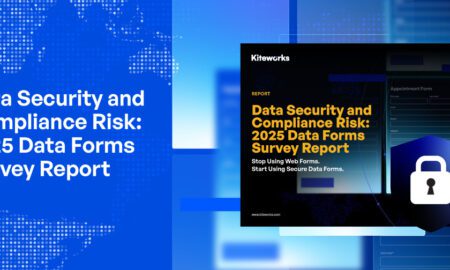Are You Losing Money by Ignoring Salesforce Managed Services?
CRM projects fail to meet expectations due to lack of expertise, poor user adoption or inefficient system management. That’s not just frustrating but it’s expensive. If you’re investing in Salesforce but skipping ongoing support, you’re probably leaking money in ways you haven’t even noticed.
Many businesses assume once Salesforce is live, the job is done. But in reality, the post implementation phase is where the real ROI starts to build. That’s where Salesforce managed services come in. They help keep your CRM running like a well oiled machine while unlocking hidden value every day.
Let’s break down how ignoring these services could be costing you more than you think.
What Are Salesforce Managed Services, Really?
Salesforce managed services are not just helpdesk tickets and bug fixes. They’re ongoing, expert backed services that keep your Salesforce org sharp, scalable and aligned with your business goals.
Here’s what that actually looks like:
- Regular system health checks and performance tuning
- Data cleaning, deduplication and smart segmentation
- Workflow improvements, automation setup and optimization
- Support for new feature rollouts and releases
- Proactive problem solving, not just reactive support
Think of it like having a full team of Salesforce pros on standby like admins, developers, architects and analysts but without having to hire them full time. And the best part? You only pay for what you need.
This isn’t just about “fixing things.” It’s about future proofing your Salesforce and making sure it delivers actual results: more deals, better customer service, faster processes.
In short, Salesforce managed services give you ongoing strategic and technical support, so your CRM grows with your business instead of becoming a bottleneck.
Hidden Costs of Ignoring Salesforce Managed Services
1. Unused Features and Wasted Licenses
Salesforce is powerful, but most companies only use 30 40% of its capabilities. When you don’t have ongoing support, it’s easy to ignore valuable tools you’re already paying for.
Without Salesforce managed services, teams often miss out on automation, advanced reporting or integration options that could boost productivity.
2. Low User Adoption = Low ROI
If your team avoids using Salesforce or uses it incorrectly, you’re losing data quality, time and insights. Managed services help train and guide users, making sure your system actually works for your team.
Consistent support leads to smoother workflows and happier users.
3. Downtime and Data Issues
System errors, sync issues or broken automations can lead to major downtime. Every hour your CRM isn’t working smoothly, you’re losing leads, deals or customer trust.
Salesforce managed services can prevent problems before they cost you real money.
4. Falling Behind on Updates
Salesforce rolls out three major updates every year. Each release includes new features, performance upgrades and compliance changes.
Without expert help, you might ignore these updates or break something while trying to apply them. Managed service providers handle it all, ensuring your org stays modern and stable.
How Salesforce Managed Services Help You Save (and Earn) More
1. Focus on What You Do Best
Instead of wrestling with technical issues or admin tasks, your team can focus on sales, marketing or operations. Let the experts handle the CRM, while you concentrate on growing your business.
2. Smarter Decisions with Cleaner Data
Managed service experts clean up your data, build better reports and give you clearer insights. That means faster decisions, better targeting and improved revenue.
With accurate dashboards, leadership stays in control — not in the dark.
3. Scalable Support Without Hiring
Need changes? Custom objects? Marketing integration? You could hire full time staff… or tap into a flexible managed services team only when needed.
That’s budget friendly and much easier to scale as your needs grow
4. Stronger Security To Reduce Risks
Salesforce security settings are complex and ever changing. Managed service providers stay on top of the latest updates, patches and best practices. They manage user permissions carefully and monitor for vulnerabilities, helping protect your sensitive data and reduce the risk of breaches or accidental leaks.
5. Training Support
Even the best CRM is useless if users don’t know how to use it properly. Managed service teams offer tailored training sessions, resources and on demand support. This helps users build confidence, reduce frustration and make the most of Salesforce tools, leading to higher productivity.
When Is the Right Time to Consider Salesforce Managed Services?
You don’t need to wait for a crisis to bring in help. In fact, waiting too long can be costly—both in time and money. Here are some clear signs that it’s time to consider Salesforce managed services:
1. You’re Constantly Firefighting
If you’re always solving user complaints, bugs or broken automation, you’re not optimizing but just surviving. Managed services help you get ahead of issues before they snowball.
2. Your Internal Team Is Overwhelmed (or Non Existent)
Many small and mid sized companies can’t afford a full time Salesforce admin. Even larger teams often struggle to keep up with updates and best practices. Managed services fill that gap and take the weight off your internal resources.
3. You’re Not Using 50% of the Features
It’s shocking how many businesses only use the bare minimum of Salesforce features. If your team is only logging leads and running reports, you’re barely scratching the surface. A managed services provider can unlock tools like Flow, Einstein, integrations and more.
4. Your Data Is a Mess
Duplicate records, outdated contacts and inconsistent fields can seriously hurt your CRM’s performance. If your reports aren’t trustworthy, that’s a big red flag.
5. You’re Scaling Fast (or Planning To)
Growth is exciting but it also exposes weaknesses in your systems. Managed services help you scale Salesforce smartly so it grows with you, not against you.
The right time to invest in Salesforce managed services isn’t “someday.” It’s when you start feeling the strain or ideally, before that point. So, proactive support saves money as well as sanity.
How to Find the Right Salesforce Managed Service Provider
Now that you’re (hopefully) convinced that managed services are a smart business decision, let’s talk about choosing the right partner.
1. Know What You Need
Start by assessing your current Salesforce pain points. Do you struggle with bugs, integrations, data accuracy or low adoption? Jot it all down. A good provider will ask. A great provider will already have answers.
2. Look for Industry Experience
Providers who’ve worked in your industry already understand the nuances of your workflows. They know what sales teams in SaaS need vs. what nonprofits or eCommerce platforms rely on. They won’t waste your time learning.
3. Ask About Their Team
Are you getting access to certified Salesforce Admins, Developers, Architects and Business Analysts—or just one person trying to juggle everything? The more specialized the team, the better your results.
4. Demand a Proactive Approach
Many providers only act when you ask and that’s not real managed service – that’s glorified task ticking. Ask them how they proactively optimize and audit your Salesforce instance. Do they send monthly health checks? Suggest automation ideas? Recommend new features?
5. Review Support & Communication Style
Do they offer Slack or Teams integration? Is there a ticketing system? How fast do they respond? A great Salesforce managed services provider should feel like an extension of your internal team, not a distant vendor.
6. Ask for Case Studies or References
The best providers are proud of their work. Ask them for before and after snapshots or to speak with a client. If they’re hesitant, that’s a red flag.
7. Understand Pricing Models
Some charge per hour, others offer monthly retainers. Clarify what’s included. Make sure there are no hidden fees for emergencies, new automation builds or extra reports. Salesforce managed services should give you predictable costs, not surprise invoices.
8. Test with a Trial or Pilot
Many top tier providers offer a trial phase. This allows you to experience their value before fully committing. Use this time to test how they solve problems, respond to requests and communicate updates.
Conclusion:
Ignoring Salesforce managed services is like buying a sports car and never getting it tuned. It might run for a while, but eventually it underperforms or breaks down completely.
PixelConsulting helps businesses like yours get the most out of every Salesforce dollar. They have experts for the long haul, whether it’s cleaning up your system, automating your sales process or training your team to actually enjoy using Salesforce.
Let them manage the backend while you focus on driving results. Because smart businesses don’t just use Salesforce, they optimize it!
FAQs About Salesforce Managed Services
Q.1 What exactly are Salesforce managed services?
Salesforce managed services are expert led, ongoing support packages designed to help you maintain, optimize and grow your Salesforce org. They go beyond fixing bugs and help you drive real business value.
Q.2 Why choose managed services for Salesforce instead of hiring full time staff?
Hiring full time employees can be expensive and limiting. Managed services give you access to a flexible, well rounded team with deeper expertise without the full time commitment or overhead.
Q.3 How do Salesforce managed services improve ROI?
They keep your Salesforce running clean, fast and aligned with business goals. You’ll save time, reduce errors and get more value from your CRM. This leads to better customer experiences and higher revenue.
Q.4 When is the right time to invest in managed Salesforce services?
Right after implementation is ideal but any time you’re stuck, scaling or seeing inefficiencies is a good time. If your team is overworked or Salesforce feels neglected, it’s time.
Q.5 Are Salesforce managed services customizable?
Yes, most providers offer flexible packages based on your needs. For example, monthly hours, specific tasks, admin support, automation help, data work and more. You pay for what you use.

































